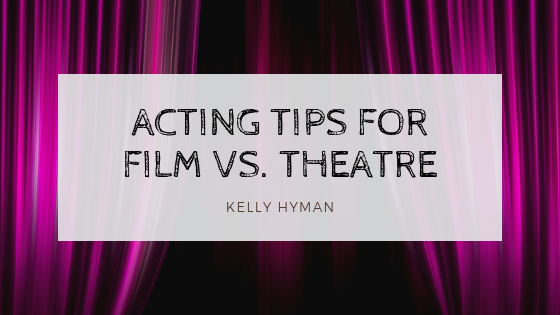Entering the world of acting and entertainment can be scary at first, but is also one of the most rewarding careers out there. There are many differences when it comes to acting for a screen vs. acting on a stage. Before you determine which path you may choose in your acting career, it’s important to fully understand the biggest differences between the two, and ultimately choose whichever will help you reach your goals faster.
Facial Expressions
When performing for a theater audience, it’s important to slightly exaggerate any facial expressions or body gestures during your performance. The reason for this is because you need to ensure everyone in the audience in front of you is able to tell what you are feeling in the moment, and can fully enjoy the show, even the people in the last row.
However, when acting in front of a camera for a screen, an actor is able to use more subtle context clues in their expressions, with a more controlled tone. Cameras are able to get up close and personal while filming scenes, doing away with the need to be overdramatic for everyone to see.
Volume
Performing live in front of the crowd certainly raises the stakes for your performance. The volume at which you speak is also a crucial aspect of live performances, as microphones require actors to adjust their voice accurately, which requires a lot of practice. Lines must be delivered with proper enunciation, at an appropriate volume that works for the whole room.
On the contrary, actors who are filming for a screen have the ability to experiment more with their performances. Since you can film a scene as many times as you would like, actors can be more flexible in how they deliver lines and play around with different voices and tones, and later allow the director or producer to choose which take was the best.
Preparation
Theatre performances are always live, which means they require hours and hours of rehearsal. Live theatre actors have to work out any potential kinks and get their parts just right before they hit the stage. While filming a movie, requires the actors to portray many different moods and feelings all in the same day, but must make sense in a way that ends up cohesive.
My advice? Give them both a try. In order to find out which performance will ultimately work best for you, you just need to put yourself out there and enjoy the journey!

